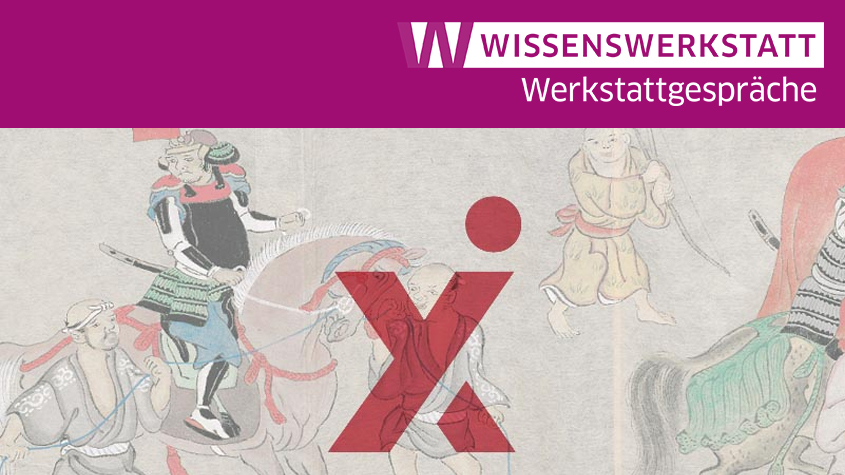Analog – Digital – Hybrid: Exploring Methodological Varieties in East Asian Intellectual Historiography through the Case of the Japanese Mito School
Werkstattgespräch in englischer Sprache mit Alíz Horváth, PhD
2021 Stipendiatin im Stipendienprogramm der SPK
Organisation: Dr. Ursula Flache – Ostasienabteilung
Digital history constitutes a rapidly developing “field,” but it is still primarily dominated by Western themes and texts. In this talk, I will introduce a possible application of digital tools in the context of the “intellectual history of historiography” in East Asia. Focusing on the procedural study of the Japanese Mito School, a controversial scholarly group that compiled the Dai Nihon shi (The History of Great Japan, 1657-1906), the largest history writing product in Japan, my project explores the shifting dynamics of intellectual history and historiography in the 17th-20th centuries, as well as the significance of foreign elements in the formation of nationalism in Japan. Due to the monumentality of the overarching theme, specifically the length of the Dai Nihon shi, the 250 year-long compilation process, and the high number of contributors (more than 150 individuals), I have developed a hybrid and integrated methodology to process the large amount of data by intertwining the close reading of the Dai Nihon shi and the individual records of the compilers with the embedded visualizations of the authors’ biographical details. My presentation will explain how dealing with non-Latin scripts affected the research process and how digital methods helped deal with monumentality to create a novel, “procedural” analysis. Finally, the talk will also explore potential means to meaningfully combine the “analog” study of the Dai Nihon shi (which I conducted in Chicago, in Japan, and at the Staatsbibliothek zu Berlin) with its ongoing digital analysis.
Alíz Horváth recently completed her PhD in East Asian Languages and Civilizations at the University of Chicago. She also holds a dual MA degree in Japanese and Chinese philology and an additional BA in Korean and Finnish language and has spent multiple years in these four areas as a scholarship holder. She is interested in the mechanisms of transnational flows in Japan, China, and Korea, as well as the dynamics of intellectual history, cultural history, and history writing. She enjoys experimenting with interdisciplinary solutions and novel methods, such as digital tools, to explore innovative approaches to the study of East Asia. She is particularly enthusiastic about data visualizations and text analysis and actively advocates for diversity and inclusion in digital humanities through the promotion of non-Western perspectives. She currently teaches East Asian (Japanese, Chinese, and Korean) history and digital humanities at Eötvös Loránd University as assistant professor and is also a member of various international DH-related initiatives, such as the NEH-funded “New Languages for NLP” project, organized by Princeton University and Haverford College in collaboration with Library of Congress Labs and DARIAH. Her ongoing projects have also been supported by a research grant, offered by the Stiftung Preußischer Kulturbesitz in 2021, to conduct research in the collections of the East Asia Department of the Staatsbibliothek zu Berlin.
Stipendienprogramm der SPK an der Staatsbibliothek zu Berlin
Zugangsdaten:
Online-Veranstaltung über Webex:
https://spk-berlin.webex.com/spk-berlin/j.php?MTID=m4d467b5ee4b258344b839b545c17c98d
Titelbild: Ausschnitt aus der japanischen Bildrolle Zôhyô uma no osaekata (Ersatztitel, 雑兵馬のおさえかた (仮題), Handschrift ohne Jahr, Signatur: 562181 ROA), welche zeigt, wie Fußsoldaten auf dem Schlachtfeld die Pferde der Krieger zu führen haben.
Zum Digitalisat


 K:\IID\IID_2_Wissenschaftliche_Dienste\01_uebergreifendeAufgaben\Wissenswerkstatt\Werkstattgespraeche\2021\09_ 16. Sep LitFestival\Web\Veranstaltung mit Francesca Melandri + Bioökonomie.msg
K:\IID\IID_2_Wissenschaftliche_Dienste\01_uebergreifendeAufgaben\Wissenswerkstatt\Werkstattgespraeche\2021\09_ 16. Sep LitFestival\Web\Veranstaltung mit Francesca Melandri + Bioökonomie.msg